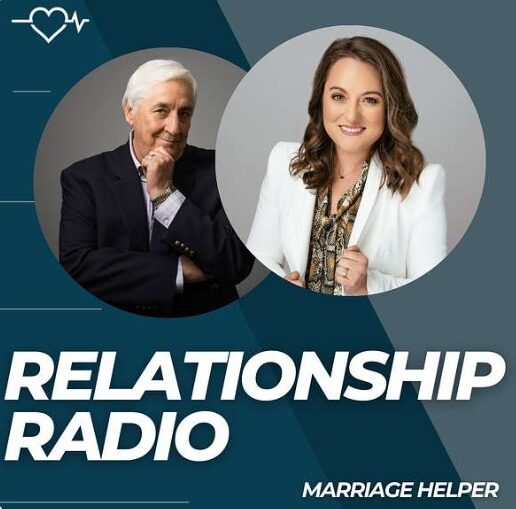While marriage might be between two people, many other people can influence it. For example, parents, siblings, and even distant relatives can positively and negatively affect your marriage. They might think their intentions are pure for interfering, but their opinions are usually biased because they love you. And so, as a way to try and protect, they may say negative things about your spouse to try and get you to make a different decision. Or, even if you’re married, they may try and get you to do things differently so that you can have the life they want you to have. Here’s how your family can hurt your marriage and what you can do about it.
Family Might Love You, But They’re Biased
Your family might have laid out a plan for you when you were younger in hopes of seeing you have a better life than they did. Those plans can wind up changing when we fall in love with someone because you’re trying to join both people’s paths together. Family sometimes can see that change in life trajectory as negative and blame it on your significant other. They can take it so far as to issue an ultimatum that they’ll disown you if you marry them.
Family, especially parents, tend to be protective and don’t want to see their children get hurt. So while they might think they’re giving good advice, it can definitely be biased and not always the wisest. So even though their motives will be good, and they’re good people, the question is, should I listen to my family regarding my marriage?
The answer to that question is that you have to decide on a case-by-case basis. Your family may lead you down the right path 99% of the time because they care about you. But biased people and biased advice can lead you to make poor decisions. This is especially true if you’re having troubles in your marriage.
Setting Boundaries
When you decide you will go against your family’s advice, be sure you’re responding to them the correct way. The best way to do this is by thanking them for the advice and asking them why they have the view they do. For example, why don’t they want you to try and reconcile your relationship, especially if children are involved?
We’ve already mentioned that you should be careful about letting biased people give you advice, but they’re not always wrong. Once they’ve explained more about their opinion, you have to decide if it’s right for you. There might be instances where you’d want to set some boundaries before you go back to your significant other.
STOPs And COREs
At Marriage Helper, we call those boundaries STOPs and COREs. STOP stands for safeguards that offer protection. And that’s what boundaries should be; it’s a way to protect yourself. And then COREs stands for continuing our relationship essentials. So if your children are saying we’re worried about ourselves, or we’re concerned about you, then that would require a STOP, a safeguard that offers protection. We are very pro-marriage at Marriage Helper, but we would never encourage someone to return to a marriage where they might get hurt. So please make safety your first concern.
We talk way more about both of these in our boundaries toolkit. You can find that by going to marriagehelper.com, going to the Courses tab, and looking for the boundaries toolkit. This toolkit has ten videos, five on STOPS and five on CORES, where we walk you through each of them step-by-step. We discuss what you need to consider before implementing them, how to tell your spouse about them, and how to enforce them. If you set STOPs or COREs, it’s essential that you enforce them.
You’ll Have To Show Your Family Your Strength
If you’ve determined that you can set enough STOPs and COREs that it’s safe to return to your relationship, you will have to stand firm against your family. You’ll get pushback from them, but set your parameters and expectations and stick to them. Your family might threaten to never speak to you again, but if you want to make your relationship work, you’ll have to stand strong.
Be sure you start working quickly on whatever issue in your marriage that caused the problem. If you don’t fix that, you’ll end up proving that your family was right to suggest you not take them back. So whether it was an affair, an addiction, or something else, you must fix it. And then you’re going to have to demonstrate, not just to your significant other, but you’re going to have to prove to the entire family that they don’t need to worry anymore.
Our Workshops Can Help You Fix The Damage
One great way to start reconciling your relationship is to attend one of our three-day workshops. We have an in-person workshop we do in the Nashville area. We also have our online version of the workshop, which can save on travel and hotel rooms. If you come to the workshop, we can show you many things about how you got to where you are and how to fix it. Just understand that the workshop is not therapy or counseling; it’s educational.
If you feel like your marriage is in trouble and you’re not sure where to start, we have a free mini-course called, “How To Get Your Spouse Back.” It’s a great place to start for turning your situation around and saving your marriage. If you’re not sure what your marriage needs right now, get in touch with one of our client representatives. They can direct you towards the best resources for your relationship.
So, how do you handle relatives who are attempting to hurt your marriage? First, remember that people who love you can give you bad advice because they are trying to protect you. But it doesn’t mean the advice is always right. Second, do not try to turn your spouse against their relatives who may have turned against you; it will always backfire. The third is to stand up to your relatives for your spouse. Make sure you set your boundaries and stick to them. And then finally, demonstrate the changes that you make to everyone involved. The families involved are more likely to accept and support the marriage when they believe it’s a healthy marriage for both people. So do what you can to become that great spouse.
WE WANT TO HELP
At Marriage Helper, we’ve walked alongside thousands of couples and spent decades researching what really works to strengthen marriages. Our goal is to provide you with practical, research-backed guidance—like the free information you’ve found on this page—because we genuinely care about helping marriages thrive. If you’re ready to go deeper, our workshops, membership, and one-on-one coaching offer even more tools, insights, and personalized support to help you navigate your unique journey and create lasting change in your relationship.
Our intensive Marriage Helper Workshop has a remarkable 70% success rate in saving marriages, even if your spouse is reluctant or unwilling to participate. And here’s what’s even more encouraging: 99% of participants recommend our program to others, regardless of their ultimate outcome.
Learn more about:



